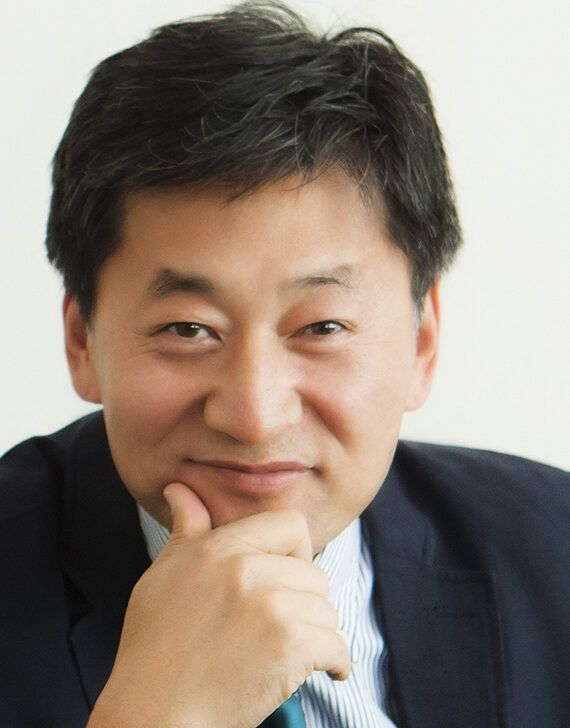
Senyon Choe
Senyon Choe studies how cells communicate among themselves. Among Choe’s recent interests is the study of molecules that bind to specific cells to instruct them to carry out specific functions. The premise that “form follows function” is a mantra for leading architects and industrial designers like Choe. In biology, evolution operates according to a similar premise because forms with better functionality are likelier to be selected. Choe and his colleagues used x-ray crystallography and NMR spectroscopy to zoom in on ion channels and receptors in the cell membrane to visualize how they interact with messenger proteins. Recent work focused on analyzing the three-dimensional structure of a whole protein complex to illustrate how TGF-beta – a messenger molecule that plays a role in cancer, the immune system and heart disease – binds to its receptor molecules on target cells to deliver instructions. An extension of this work explores the possibility of designing new messages to instruct cells to carry out non-natural or “beyond-natural” processes, such as coaxing differentiated cells back into an immature, pluripotent state. These types of newly created “design-augmented (DA)” messages have tremendous clinical potential as guiding molecules.
Choe received his doctorate in biophysics and medical physics from University of California, Berkeley in 1987. After a postdoctoral fellowship at Cornell University, he focused on determining 3D atomic structures of diphtheria toxin and of synthetic coiled coil zipper at UCLA (1988-93). In 1993, he became the founding faculty member of the Structural Biology Laboratory at the renowned Salk Institute in San Diego. There, he built a research team to elucidate molecular mechanisms of how cells communicate, with the help of mentors/colleagues including Nobel laureate Francis Crick, Nobel laureate Roger Guillemin, the late neuroendocrinologist Wylie Vale, molecular and cell biologist Tony Hunter and the late molecular neurobiologist Chuck Stevens. An extension of Choe’s earlier work on TGF-beta family and potassium channels has led to designing novel DA biologics to modulate stem cells and sick cells directly. After 22 years at Salk, Choe joined the Qualcomm Institute as a research scientist in 2015.
His major honors include election in 1999 to the American Association for the Advancement of Science (AAAS) in recognition of his cutting-edge work in biophysics. His group at joint Center for Biosciences in Korea, which he founded in 2008, focuses on protein engineering and developing new DA biologics and DA microbes, facilitating drug discovery for the pharmaceutical industry. Most recently, Choe has focused on exploring the clinical potential of these discoveries.
Email: schoe@ucsd.edu